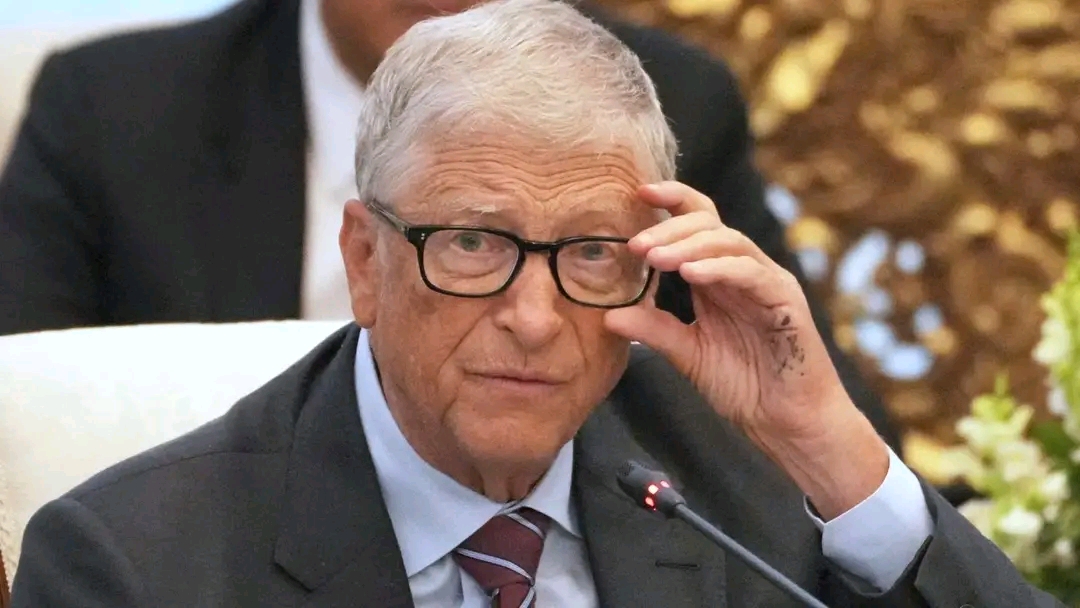Must Read
It was a sad and emotional moment on Monday in New York when billionaire philanthropist Bill Gates raised his voice about the shocking rate of child deaths in northern Nigeria. Speaking at a Reuters Newsmaker event, Gates said something that touched the hearts of many people: “A kid born in northern Nigeria has a 15 percent chance of dying before the age of five.” Read Our Last Post: Shock in Nigeria as Omoyele Sowore Accuses Minister Nyesom Wike of Owning Billion-Naira Hotel Where a Room Costs ₦250,000 Per Night
Those words sounded like a heavy cry, a painful reminder that children who should be full of laughter and dreams are instead facing the danger of death before they can even start primary school. Gates explained that the world is now at a crossroads. He said millions of children could lose their lives if rich countries and governments do not give more support to health care. “You can either be part of improving that or act like that does not matter,” Gates warned.
This warning came just before the annual Goalkeepers event of the Bill and Melinda Gates Foundation. Gates announced a huge pledge of 912 million United States dollars to the Global Fund, an organisation that helps fight AIDS, tuberculosis, and malaria. These are diseases that continue to kill many people, especially children, in poor countries. But Gates made it clear that even though he and other philanthropists are giving money, they cannot carry the full weight of what governments are cutting away. “I am not capable of making up what the government cuts, and I do not want to create an illusion of that,” he said.
The problem is already serious. According to the Institute for Health Metrics and Evaluation, global health aid has dropped badly. Between 2024 and 2025, assistance went down by 21 percent. This drop means fewer vaccines, fewer medicines, and fewer doctors reaching the children who need them most. Gates warned that if the world does not wake up quickly, all the progress made since the year 2000 may be lost. That progress included cutting child deaths almost in half and saving about five million lives every single year.
But even in the midst of this frightening picture, Gates showed hope. He said that if the right investments are made now, millions of children could still be saved by the year 2045. He also promised that by that year, he would have given away almost all of his 200 billion dollar fortune to causes that save lives. Gates mentioned that the world must continue supporting groups like the Global Fund and Gavi, the Vaccine Alliance, which are helping countries get vaccines for children. He also pointed to new innovations, such as a long-lasting HIV prevention drug called lenacapavir, which can change the fight against diseases if quickly adopted.
His words were clear: “What is happening to the health of the world’s children is worse than most people realise, but our long-term prospects are better than most people can imagine.”
Not every country is turning away. Gates praised Spain for stepping up at a time when others are stepping back. Spain increased its donation to the Global Fund by 12 percent this year and also raised its support to Gavi by 30 percent. This, Gates said, shows that even in hard times, governments can choose to save lives instead of cutting help.
For Nigeria, especially in the north, Gates’ warning feels very close to home. Many families already know the pain of losing children to sicknesses that could have been prevented with simple vaccines, clean water, or better hospitals. The thought that one out of every seven children born there may not live to see their fifth birthday is heartbreaking. It is a reminder that behind every statistic is a child with a name, a smile, and a family left in tears.
This story is not just about numbers. It is about real children. It is about mothers who hold babies in their arms and pray they will live. It is about fathers who work hard but cannot afford medicine. It is about communities that bury little ones before their time. And it is also about the world, which must decide whether to watch quietly or to act with compassion and urgency.
Bill Gates has sounded the alarm. The question now is: will the world listen?
-Picsart-AiImageEnhancer.jpeg.png)


